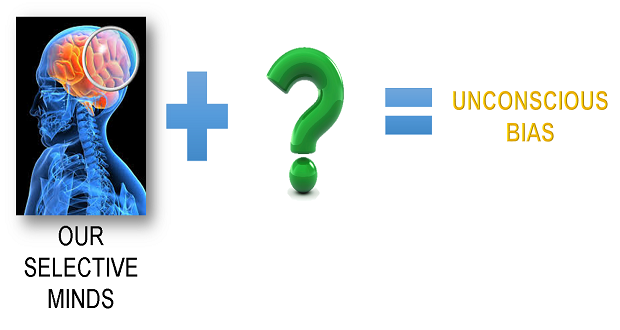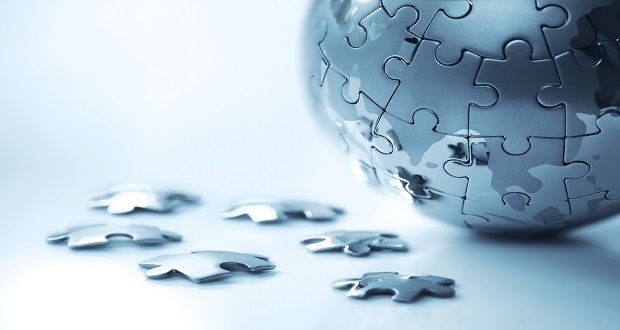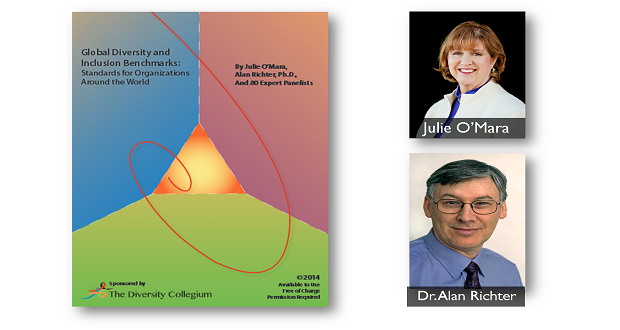
Ask any educator, of any kind, what the best way to learn something is and they will tell you by teaching it. It’s actually an interesting phenomena; that in the process of trying to transfer knowledge to someone else, you actually deeply embed the concept into your own mind. It is also one of the great hidden blessings of educating—when you yourself reap the benefits of the labor of teaching.
I had this experience recently in preparing for one The Winters Group Virtual Learning Labs on Unconscious Bias. I have been researching concepts surrounding unconscious bias for over a year, but I had one of those moments when concepts that you’ve previously known “click” for the first time—or at least in a new way. After pouring through dozens of scientific literature on unconscious bias, I began to notice that something vital was often missing (but not always). The missing link, at least in a large portion of the research, is culture.
It seems to me, that much of the focus of unconscious bias literature can be summarized as psychologically and neurologically leaning explanations—and for obvious reasons. The research on how the brain works to naturally create “thin slices” of information from an otherwise chaotic world is fascinating and groundbreaking. The way the brain and mind process and make sense of the world is what sparked the burgeoning interest in unconscious bias. But it’s not the whole story. In fact, it’s only half of the equation.
Ultimately, it is the brain that selectively creates biases of the outside world; but it does not do this alone. The brain is performing its natural job of “sense making” from an overwhelming amount of information. The problem is, the brain must “make sense” of the biased information of culture that we subject it to. This happens through every conceivable cultural outlet we are a part of. The families we grew up in, the movies we watch, the churches we attend, the books we read, and the organizations where we work don’t always give us an objective picture of the world; and they never could.
So our unconscious biases are created from a “tag team” of our naturally selective brains and our inherently selective cultures. This is important for at least two reasons. First, as fascinating as it is, it is not enough to only focus on the unique nature and process of the brain. Doing so inevitably misses the mark and puts “blame” on a mind that is simply doing its job. Second, I think including a focus on the role of culture gets us one step closer to creating solutions that “undo” our biases. If it is our selective cultures that help create our selective biases, then exposing ourselves to a more objective and fair picture of the world will in turn create more equitable and true understanding of the people and places around us.



















Great summary. So if the brain is doing its job (making sense of the world by creating manageable ‘thin slices’) it seems to me that the brain is more like a machine or a computer that is performing its job based on the information or data that is ‘input’ into it (culture). If this is true, or chiefly true, then culture is way more than half of the equation, wouldn’t you think? I tend to tell folks that culture might help explain more like 99% of unconscious biases….
Hi Rebecca! Thanks for your comments! I like your computer analogy and you offer a great qualification. I wasn’t really thinking of which factor has more influence (percentage wise) in the equation but that they both contribute to the formation of biases. But I couldn’t agree more. I’m not sure where I’d place percentages if I had to, but I think culture far outweighs the mind in terms of influence. This is good food for thought. Thanks again…
Travis, another important insight and read from you. Many years ago going through a deeply profound personal experience to uncover my racial bias (meaning racist), I came to eventually internalize and accept that my cultural biases were formed by those that I loved and trusted the most in my life; family, church school, and friends. The most humbling realization was despite our good intentions, my wife and I were unconsciously passing along biases to our daughters which only propagated a hierarchy of systemic advantage based on race, gender, religion, sexual orientation, as examples.l
Hi Frank! Its so good to hear about others on the same journey. Thanks for sharing!